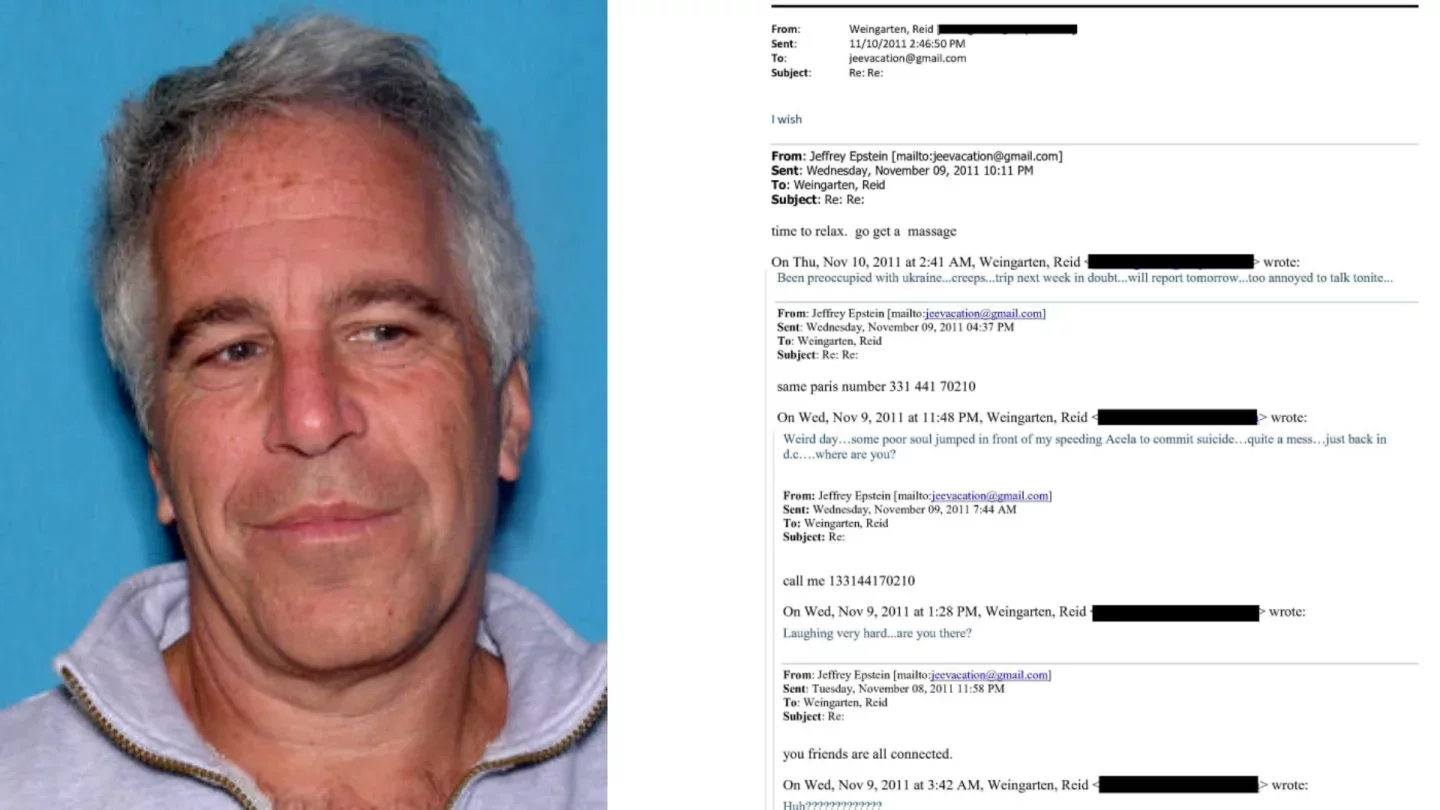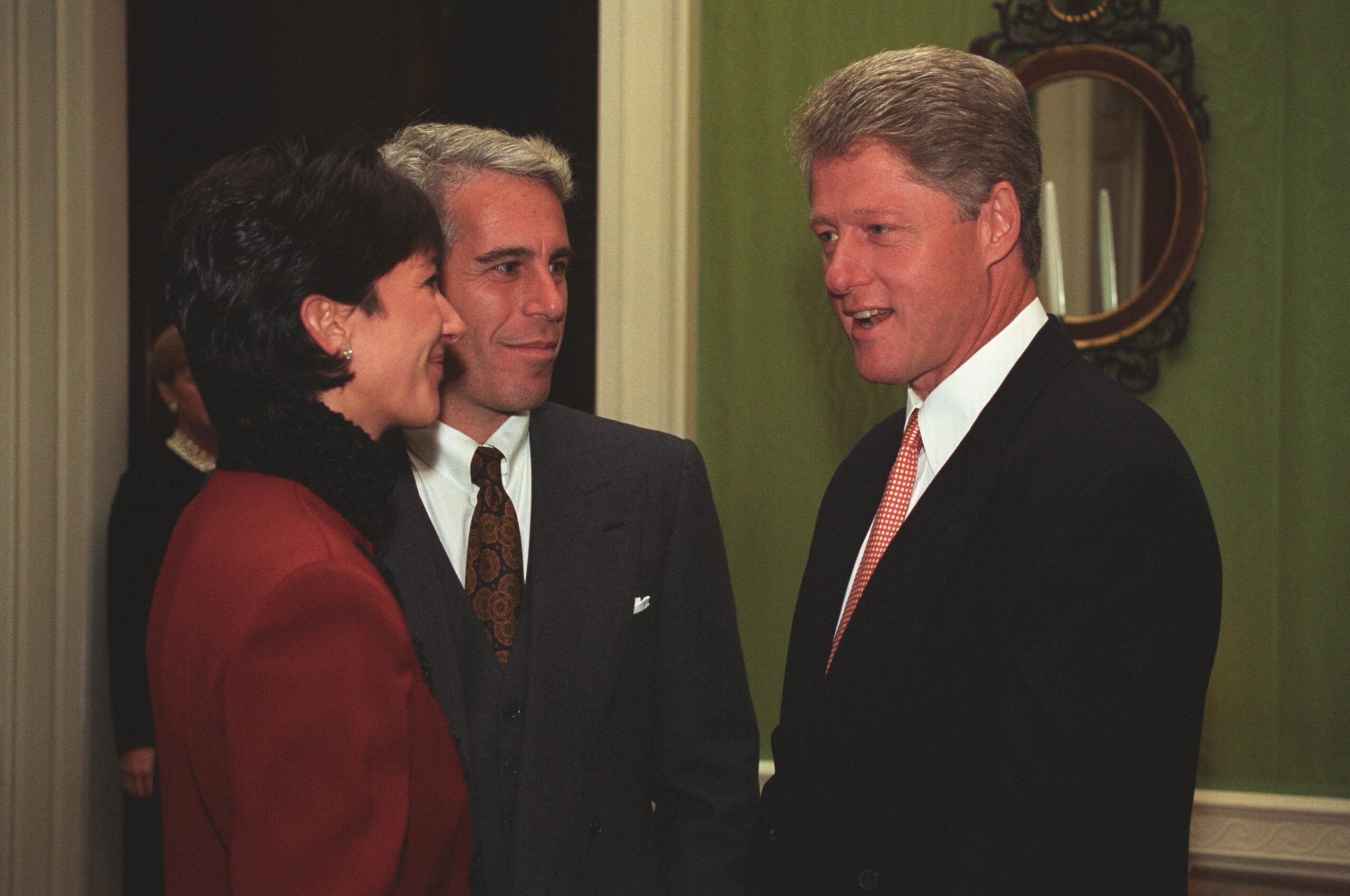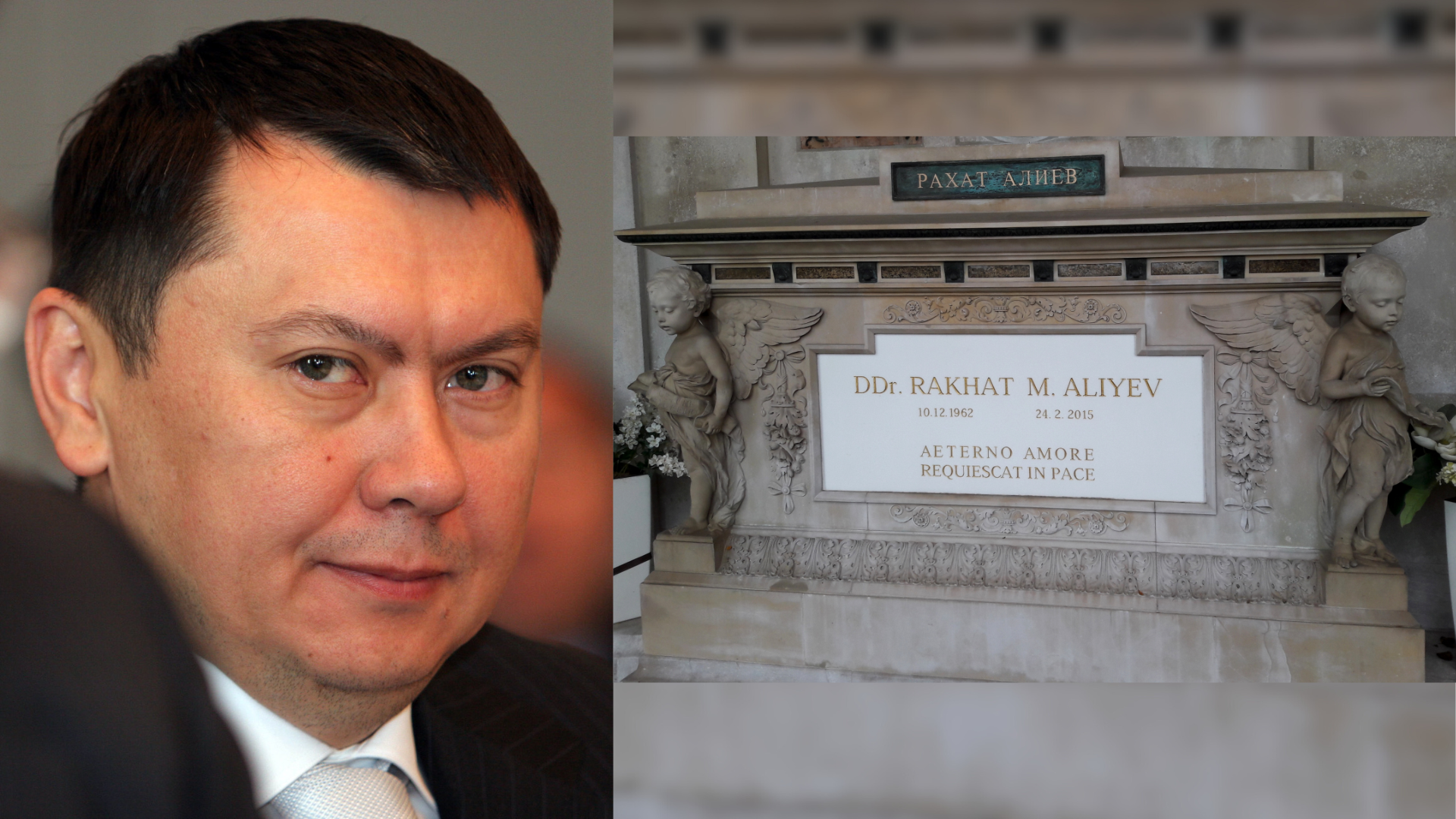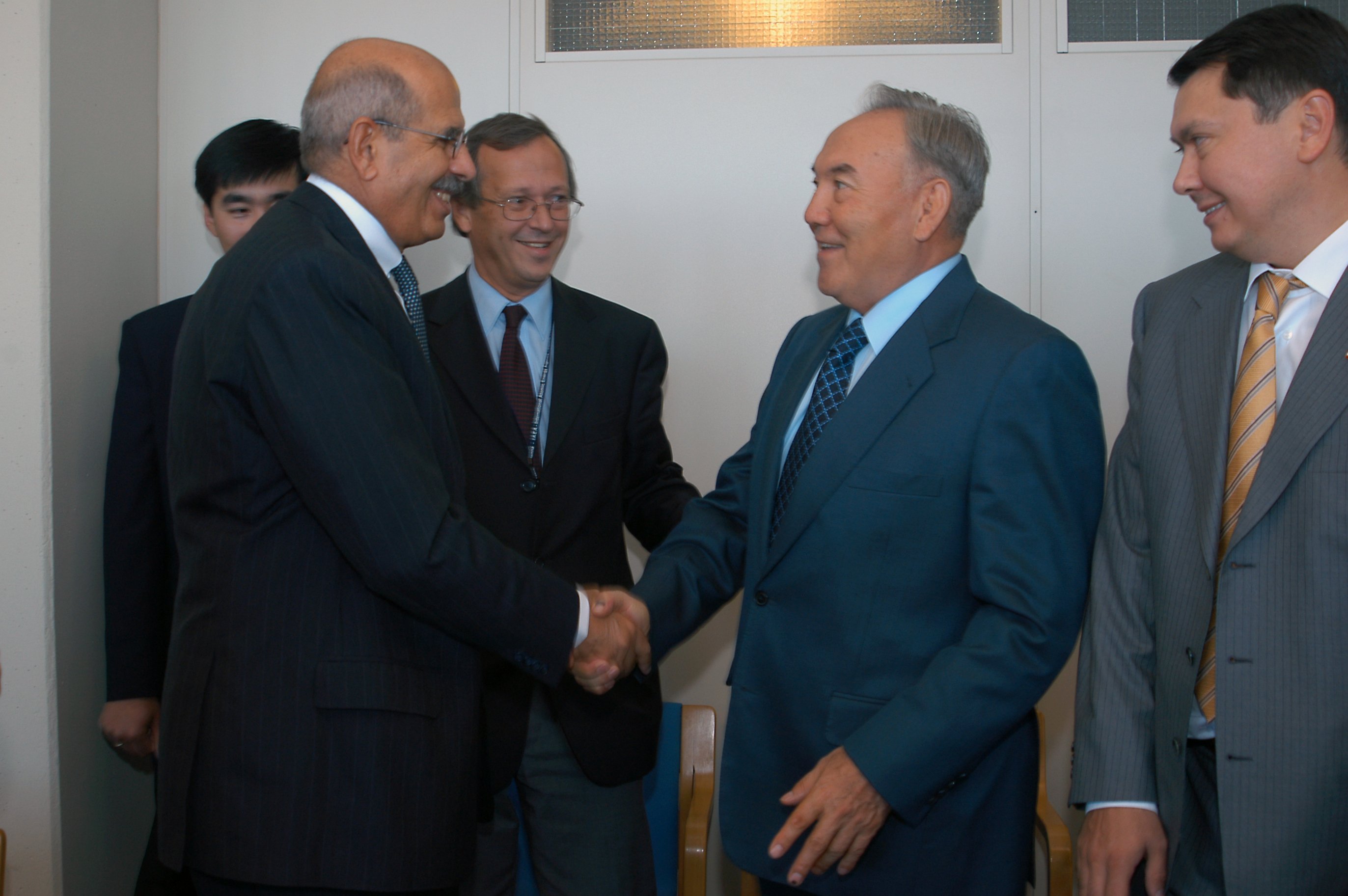Nazarbayev’s Name Unexpectedly Surfaces in Newly Released Epstein Files Concerning Old Conflict with Aliyev
 Photo: Florida Department of Corrections and document screenshot
Photo: Florida Department of Corrections and document screenshot
The name of Kazakhstan’s first president, Nursultan Nazarbayev, unexpectedly surfaced in a collection of U.S. documents related to the case of financier Jeffrey Epstein, who was convicted of sexual offenses involving minors.
These files — brought to light amid a political battle in the United States — reveal an old and extremely bitter conflict inside Kazakhstan's elite and attempts to bring it into Washington’s orbit.
Orda.kz examined what the newly released American documents show.
Released Documents
The Department of Justice announced it is reviewing possible ties between Jeffrey Epstein and several prominent members of the Democratic Party. Meanwhile, the review coincides with a new wave of Epstein-related document releases, which include references to figures from both U.S. political parties, including Trump.
Among those referenced are former U.S. President Bill Clinton and well-known financial figures.
Clinton has not been accused of misconduct and publicly expressed regret for his association with Epstein.
Epstein was widely known for bringing celebrities and top officials to his private island and remained under investigation for the sexual exploitation of minors. In 2019, he died by suicide in jail — he was found hanged in his cell.
The release of court records revealed the scale of the network Epstein was alleged to have built. The documents describe a wide range of crimes attributed to him — from rape and sexual exploitation to human trafficking, unlawful confinement, abuse, and kidnappings of women and children.

After Democrats in the House of Representatives published part of Epstein’s correspondence mentioning Trump, the U.S. president demanded that “the full picture” be disclosed and that Epstein’s connections with other influential political figures be examined.
In a Truth Social post, Trump stated that he asked Attorney General Pam Bondi to "investigate Jeffrey Epstein’s involvement and relationship" with Clinton and others, arguing that Democrats were speculating based on selective information.
Experts who spoke to The Guardian believe the files are almost certain to shed new light on Epstein’s network and could expose or even seriously implicate well-known figures across politics, academia, finance, and entertainment — Donald Trump among them, as well as many others.
At the same time, they caution that even with a legal requirement for disclosure, the Department of Justice may still limit what becomes public.
Redactions, withheld documents, or other technical justifications could blunt the impact of the release. As a result, specialists warn that even this file dump may not answer long-standing questions about Epstein’s activities, associates, or the full scope of his crimes.
An Unexpected Turn
Amid the batches of 2011 diplomatic correspondence, investigators found materials that, at first glance, had no connection to Epstein. However, they became part of the debate because Democrats cited them as an example of “questionable foreign contacts,” and Republicans countered by arguing that such connections existed on both political sides.
One of the documents describes the long-running conflict between former senior Kazakh security official Rakhat Aliyev, then married to Dariga Nazarbayeva, and Kazakhstan’s former president Nursultan Nazarbayev.
Aliyev, Nazarbayev’s former son-in-law, was found hanged in an Austrian prison in 2015. He was considered one of the most controversial figures in Kazakh politics: he triggered the political crisis of 2001 and became central to the scandal later known as Rahatgate.
He was sentenced in absentia to 40 years in prison on charges of treason and an attempted coup.

According to the Epstein-related document, Aliyev sought support from Washington in his confrontation with Nazarbayev, asking for “safe passage to the United States and help in recovering $2 billion,” his family claimed he lost after his business assets were seized.
The Kazakh leader (Nazarbayev — Ed.) wants to make sure that the Americans stay out of the dispute, and not allow it to affect their alliance with his government. The Obama administration has done just that. Through comments in secret diplomatic cables, the former ambassador to Kazakhstan made clear his wariness of being drawn in.the document states.
U.S. diplomats, judging by correspondence, tried to stay clear of Kazakhstan's internal conflict.
Former ambassador Richard E. stated:
Both sides - the government and Aliyev - seek to manipulate us to their own advantage.
From the document, it is evident that:
- Nazarbayev sought to prevent U.S. involvement, fearing damage to bilateral relations
- Aliyev, hiding in Europe, insisted the charges against him were fabricated
- He hired American lobbyists to gain congressional attention and discredit Nazarbayev’s government
For example, lobbyist Rahall explicitly described her strategy:
The alternative is to embarrass the existing regime, she wrote to her superior in July 2008.
She highlighted human rights concerns in Kazakhstan, and at her request, at least five congressional statements were issued regarding pressure on political opponents.

Why Now?
Republicans argue that if Democrats are willing to pull up any document that mentions Trump, then they must also accept scrutiny of all political and financial contacts, including Democrats’ interactions with controversial foreign figures.
To illustrate this, Republicans began releasing other sets of diplomatic materials — and among them were the documents referencing Nazarbayev, Aliyev, and their efforts to influence U.S. institutions.
The Kazakh angle resurfaced not because it is directly linked to Epstein, but because it became ammunition in a political war in Washington.
The U.S. Department of Justice stated it will review any referenced connections but stressed that, currently, this is only a review process, not a declaration of guilt.
Original Author: Alina Pak
Latest news
- The War in Iran Opens a Window of Opportunity for Kazakhstan’s Oil Sector, Analysts Say
- Iran Conflict Escalates Beyond the Gulf: What Kazakh Experts Say About Risks for Central Asia and Kazakhstan
- Kazakhstan Prepares Possible Evacuation of Its Citizens From Iran
- LRT in Astana Is Reaching the Finish Line: The Launch Is Expected in the Coming Months
- Kazakhstan Ready to Help the UAE Amid Escalation in the Region
- Tokayev Discusses Middle East Escalation With Qatar’s Emir
- Airlines Ready to Bring Kazakhstanis Home From the Middle East
- Tokayev Sends Support Messages to Gulf Leaders Amid Regional Escalation
- Kazakhstan Bans Its Airlines From Flying Over Several Middle East Countries
- Astana Strengthens Security Measures Amid Escalation Around Iran
- Tokayev Meets U.S. Ambassador Stufft, Discusses Board of Peace Cooperation
- Mangystau Launches AI-Assisted School Monitoring to Prevent Teen Suicidal Behavior
- Kazakhstan to Supply UK With Critical Minerals
- AI Faculties for Educators to Open in Kazakhstan: What Other Changes Are Coming to the Education Sector
- There Are Medals — But Not Enough Ice: What’s Happening to Figure Skating in Kazakhstan
- Is Kazakhstan’s Nuclear Power Plant Project at Risk After New UK Sanctions? Rosatom Responds
- Prosecutor General’s Office Suspends Extradition of Navalny Ex-Staffer Detained in Almaty
- Former EBRD Executive Jürgen Rigterink Elected as New Independent Director on Bank RBK’s Board of Directors
- Kazakhstan Near Bottom of Retirement Comfort Ranking
- Kazakhstan to Open New International Flights Across Asia, the Middle East and Europe

